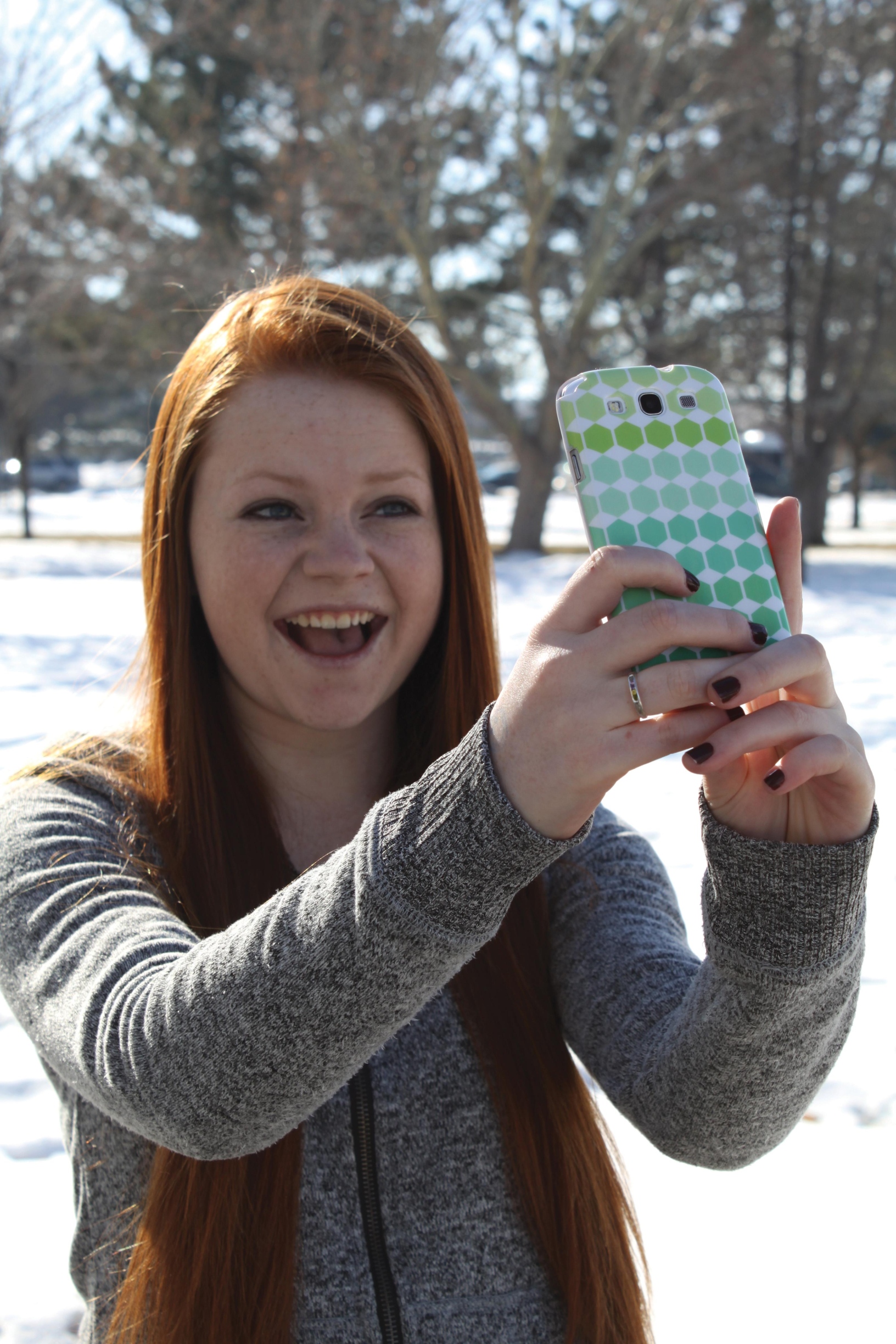Selfie Police: a chance to be selfless
Some people take them daily, hourly or every few minutes. Others wait for a colorful background or wardrobe change. Yet others find them tasteless, vain and unnecessary.
What are they? They’re selfies – and they are everywhere.
But what if selfies suddenly became a very selfless option?
That’s the goal of the Selfie Police, a new social trend created by Chas Barton, 24, and Dustin Locke, 25, by inviting selfie takers to fine themselves $1 per selfie. Every dollar raised goes to Vittana, a non-profit organization that provides micro-loans to college students in Third World countries, Barton said.
Barton and Locke formulated the idea in a 24-hour creativity competition at BYU a year ago, Locke said.
“We talked until three in the morning, went to bed, came back in the morning,” he said. “We kind of hit at the idea all day and couldn’t think of anything. Then, about two hours before pitch time, we thought of the idea.”
They took second place in the competition.
Locke said the idea of the competition was to connect nonprofit Vittana with the Millennial generation.
“Selfies are a very Millennial thing and getting kids to college is a very Millennial thing,” Locke said. “So we’re connecting people with similar interests, just in very different places.”
The idea did not develop into something concrete for several months until selfies began to take over social media, Locke said. The Oxford Dictionary named “selfie” the word of the year for 2013. Oxford Dictionary defines a selfie as a picture taken of oneself, by oneself and generally uploaded to various platforms of social media sites.
“Just this fall we started seeing the buzz of it with selfies,” Locke said. “We kind of decided we had to jump on it and that we were kind of dumb for not doing it beforehand.”
The website selfiepolice.org with its tagline “You owe humanity a dollar,” launched on Jan. 7. Within the first day, the site received more than 1,000 hits, Barton said.
“Launch day was pretty awesome,” Barton said. “We put it out there and just started trying to blow up all of our social media accounts.”
They primarily targeted audiences through Facebook, Twitter and Instagram, he said.
The influence was widespread.
“There was a lot of local activity in terms of Utah and surrounding areas,” Barton said. “But looking at Google analytics for the site, we reached all but three states.”
According to the site, the Selfie Police has raised $1,403 so far, equaling 1,403 selfies paid in full. Vittana recognized the efforts through a tweet about the Selfie Police on Jan. 8, calling it “brilliant.” Donations are made through a PayPal link on the site.
Kevin Meacham, USU/SA service center vice president, jumped on the selfie train recently, though he said he was reluctant at first.
“I’m not a big fan of posting selfies,” Meacham said. “I think they’re really stupid and absurd.”
Meacham, who shares a mutual friend with Locke, said the charitable spin of the Selfie Police changed his opinion.
“I think definitely it takes a positive spin on it, and if I can see it’s going toward a greater cause and it’s a bigger picture and it’s fun and games, then yeah, I mean, it changes my perspective of the whole idea of it,” Meacham said.
He posted his selfie on his Twitter feed, he said.
“That will probably be the only selfie that I ever post,” Meacham said. “But if it’s going toward a good cause, then I’m all for it.”
Locke said he isn’t much of a selfie guy either, but his co-founder has a different opinion of them.
“We almost had to have an intervention with Chas last year,” Locke said. “He actually went back and paid for every one of his selfies.”
Barton did not deny Locke’s claim.
“I enjoy the occasional selfie,” Barton said. “Selfies are wonderful. You just need to embrace them.”
Lauren McCabe, a sophomore in family consumer sciences education, called the idea innovative and clever.
“Selfies are kind of silly and I don’t take selfies a lot,” McCabe said. “But I might start taking a selfie just so I can Selfie Police myself so people will pay money to donate to this awesome charity. College is really important to me, and I’m passionate about helping others to have that opportunity also, and this is just a really simple way that a lot of people can donate.”
Locke said they’d like to raise at least $20,000 for Vittana.
“Our plan is when we have enough followers, when our army of Selfie Police is big enough … we’re going to turn and use that force to call out higher profile people, like celebrities,” Barton said.
There is a list of the Selfie Police most-wanted on selfiepolice.org, including selfie-prone stars such as Jimmy Fallon, Lebron James and Beyonce.
“Justin Bieber, in particular,” Barton said. “We’re going to take him down, get him to join the cause, pay up for all of his selfies. He owes quite a bit of money.”
Meacham said he believes celebrity involvement is the key to success for the Selfie Police.
“In my eyes, if they do that, then game over,” he said. “It’s going to take off.”
Selfie Police has reached local and national attention through coverage by forums like KSL and The Huffington Post. Meacham said he’d like to see USU become a selfie-policed campus.
“Hopefully it catches on with our campus and we kind of take it in,” he said. “It’s going to a great cause, so the more people that kind of get into it, the better it’s going to be.”
Barton agreed.
“We’ve made it okay for everybody to post a selfie now,” he said. “In fact, it’s the most charitable thing you could do.”
The Selfie Police can be found on Facebook, or on Twitter and Instagram under selfie___police – three underscores – and under the hashtag #selfiepolice.
–noelle.johansen@aggiemail.usu.edu
twitter: @broelle

